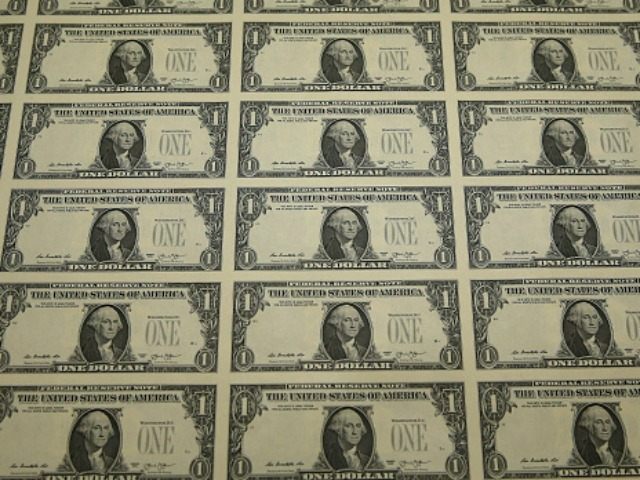The theme of the morning conversation on Breitbart News Daily was freedom.
Economic freedom is the practical expression of liberty – if we’re not free to sell our goods and labor, spending and investing the proceeds as we see fit, we’re not truly “free” to do anything except complain about how the government treats us. And if we don’t have access to valid information about the government, and how its activities distort our markets, we don’t have economic freedom, any more than the victim of a common swindle made a “free” choice to be robbed.
John Tamney, editor of RealClearMarkets, made the case that free markets equal freedom. He cautioned against sacrificing that freedom in the name of government-mandated “compassion,” arguing that capitalism was the most humane system for organizing society. “But even if it weren’t, we should still have it, because it speaks to freedom. It basically speaks to letting people keep what they produce, and exchange it with others for what they produce.”
Tamney found it difficult to embrace a bill such as the Trans-Pacific Partnership as an exercise in “free trade,” because the bill is so enormous and incomprehensible. Six thousand pages of regulations, kept hidden from the public until the final hours, are not an expression of economic liberty. Tamney finds the size and scope of the TPP “bothersome” from this perspective, and said it was a shame free trade had become so politicized.
“Trade should be free by nature, because we as individuals are free,” Tamney explained. “It should be one page: ‘You’re free to trade with whomever you want, and they’re free to sell to you whatever they want.’ It’s a voluntary arrangement.”
Another voluntary arrangement of great benefit to consumers is the ability to do business outside of government-enforced cartels and unions, which naturally raise prices by restricting competition. Tamney hailed the rise of Internet services such as Uber for subverting government attempts to “cartelize” business, to the benefit of well-connected interests and established big players. He predicted the Uber approach would revolutionize health care, air travel, and many other industries.
“I think what we’re seeing is, technology is running well ahead of the political class, and it’s going to be good for everyone,” he declared.
He said he was “very optimistic” about the future, but found the efforts of current politicians, from both parties, to deal with technology-driven economic freedom “clownish.” He wished the Republican candidates would focus more heavily on the drive for smaller government and greater economic freedom.
Government doesn’t only restrict economic freedom with burdensome regulations and absurd tax policies. As Fox Business contributor Ed Butowsky explained, it steals a great deal of our freedom by lying to us.
Pushing people into certain business and political decisions by feeding them false information is a form of compulsion, as every con artist in the local penitentiary can tell you. In America today, political power grants an unlimited license to swindle without risking prosecution.
Butowsky has been trying to crack open one of these government scams by exposing the return of stagflation, a topic he explored last week for Breitbart News. In his Monday-morning interview, he explained that people don’t talk about inflation and economic stagnation any more, because after those forces brought down President Jimmy Carter, the government simply redefined them out of existence.
This was not just done to spare incumbent politicians from embarrassment and electoral defeat. Butowsky pointed out that the Consumer Price Index (CPI) is directly tied to cost-of-living calculations, so doctoring the CPI down to absurdly low levels not only hides inflation, it also spares both public and private sectors the burden of paying huge cost-of-living increases… which not only depresses wages, but also helps to hide the true cost of government.
“The CPI went from 12 percent to 3.8 percent in a year,” Butowsky said of the Reagan-era recalculation. “That’s hogwash, and that’s one of the biggest problems that has impacted this country.”
He spoke of a ripple effect radiating through both the halls of government and free marketplace from this fundamental act of deception, inviting listeners to judge if consumer prices went up 10 percent last year… or zero percent, as the government reports.
Butowsky advocated an audit of the federal government to expose this deception, and many others. He said it was “preposterous” that nominally free people are expected to cast votes and make business decisions without knowing what the books look like for all-powerful government agencies such as the Federal Reserve… and predicted the American people would be “disgusted” when they got a look at those long-hidden balance sheets.
He cited the true size of the national debt as one of the unpleasant discoveries awaiting us. “We are basically printing money and financing ourselves,” he said of Washington’s approach to madcap deficit spending. Worse, the money we don’t borrow from ourselves comes from foreign powers that could easily decide to stop buying our short-term debt someday, leaving us one foreign-policy crisis away from fiscal collapse. Butowsky noted it was very difficult to play “hardball” with foreign powers when their constant cooperation is required to sustain our shaky national finances.
It’s also hard for American voters to judge the performance of the government on Election Day when they have no idea what its finances really look like, or how much leverage it truly has to resolve foreign-policy disputes. It’s another example of how illusions make a mockery of freedom.

COMMENTS
Please let us know if you're having issues with commenting.